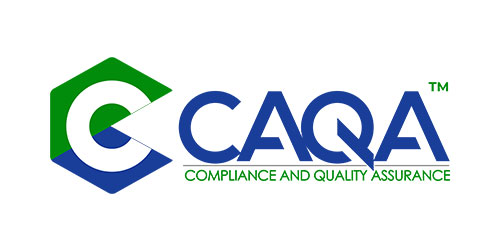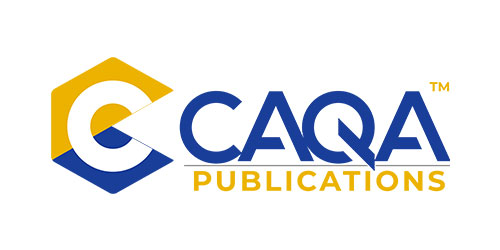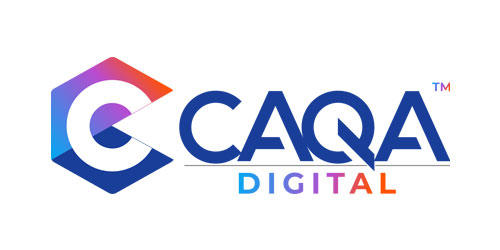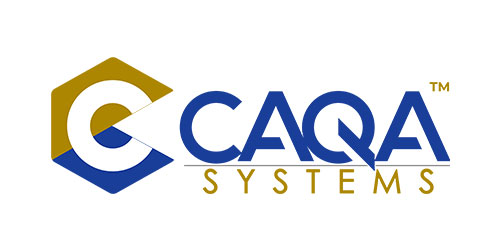-
Home
- |
- Blogs
- |
- VET Sector
- |
- Acute skills shortages in VET
- Home
- |
- Blogs
- |
- VET Sector
- |
- Acute skills shortages in VET
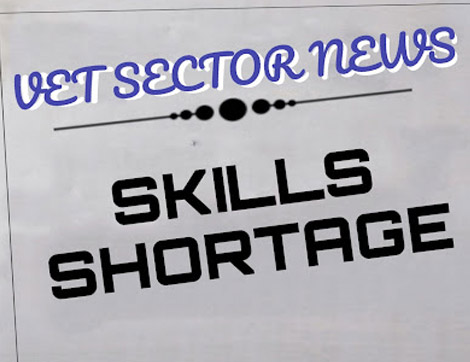
Acute skills shortages in VET
Coming out of lockdown and re-opening RTOs have revealed one big problem. The VET sector has huge skills shortages, and there are nearly hundreds of vacant VET positions advertised in SEEK this week across Australia.
There are many factors that have contributed to this shortage, and it did not happen overnight. A big contributor has been the casualisation of the workforce and RTOs pushing for staff to become contractors.
Working as a casual or contractor can be alright for some time, but over a longer period of time, most people want to know that they have ongoing employment where sick leave, annual leave and superannuation will be paid.
Also, there are problems with regards to getting a loan when a person doesn’t have secure employment. The COVID lockdowns meant that many lost their jobs and started looking for other opportunities, and the ones remaining were ill-prepared for the online training environment.
Another problem is the requirements of current industry skills and current VET knowledge. There is nothing wrong with this, but when this is delegated back to the trainers to complete in their own time and without any remuneration, it does become a problem. There is also the constant changes of Cert VI TAE and the training packages.
Many qualified trainers have now gone back to the industry they came from and work under better conditions than the ones the VET sector provides. In the traditional apprenticeship areas, experienced tradespeople are often paid double or more than what they would be paid working as trainers and with no after-hours work marking assessments and no lesson planning. Boomers are also now retiring in huge numbers.
The skills shortage and lack of management-level people who can understand and implement the requirements of a compliant RTO are also at an all-time low. Many have left, tired of the constant changes and updates that have not led to any substantial improvement in the outcomes for students. If anything, they have contributed to lowering the skills level of graduates and added a massive burden on administration.
Have we got any trainers left in the VET sector that can actually teach? I do need to ask the question. When you are faced with statements like, and I quote:
“How can I teach this unit of competency when I don’t have the marking guide for the assessment?”
“We are starting the delivery of training today, and we need the assessment and marking guide for the trainer.”
“I didn’t take the position because all they wanted me to do as a trainer was tell the students the right answers to the questions.”
When did training delivery stop being just that, and when was training reduced to giving the students the answers to the questions? I wonder if some of the trainers currently working in the VET sector could actually complete an assessment themselves without a marking guide and with no access to Mr Google.
How are the students graduating from this type of “training” going to cope in the workplace? No wonder many employers say that it makes no difference if a person comes with or without a VET qualification because they need to be trained from basics anyway.
3 years ago
Related News

6 October, 2016
The new VET loan scheme to exclude shonky providers?
The new VET loan scheme to exclude shonky providers? From 1 January 2017 VET FEE‑HELP will cease and VET Student Loans will commence. Tougher restrictions on eligible private college courses, loan caps and student engagement requirements are among the changes due to come into force in 2017. The new scheme will have a maximum $15,000 […]
8 years ago

17 November, 2016
VET student loans to support only genuine students
The education minister, Simon Birmingham, has revealed strict new rules for courses and training organisations in the VET student loans program that will penalise colleges with less than 75% pass rates by restricting enrolments. The Department of Education expects the reforms, which begin at the start of next year, to remove about a third of […]
8 years ago

11 May, 2018
Industry Expert reveals lessons learnt from 65+ ASQA Audits
Sukh Sandhu’s Interview conducted by EduTemps During his 20 years in the VET and Higher Education sector, Sukh Sandhu has witnessed a radical shift in compliance landscape. Here he shares his experience on how VET organisations can adapt and thrive in a challenging environment. Few industry professionals have seen the revolution in VET compliance as […]
7 years ago

8 June, 2018
VET Industry News 8-Jun-2018
ASQA is increasing scrutiny on new applications for registration from 1 July 2018. Vocational education and training (VET) and the education of overseas students make a significant contribution to Australia’s economy. More than four million people undertake VET qualifications in Australia each year and the quality of the training sector has a direct impact on […]
6 years ago

8 June, 2018
Record breaking number of overseas students are selecting Australia as their education destination
Figures released recently showed a 12% increase in the number of foreign students in Australia compared to the same period last year, more than 500,000 for the year, according to new government figures. Education Minister Simon Birmingham said Australia has taken in some 510,000 international students from over 190 countries this year. The number of […]
6 years ago

12 July, 2018
Reporting obligations for Registered Training Organisations
Under the Standards for Registered Training Organisations 2015, all RTOs are obliged to provide accurate and complete data. All ASQA-registered training organisations RTO must meet mandatory annual data submission requirements, including: Submitting the annual declaration on compliance to ASQA Submitting total VET activity (TVA) data, including the reporting of unique student identifier (USI) data. There […]
6 years ago

12 July, 2018
ASQA News 12-Jul-2018
Definition of Enterprise RTOs updated ASQA has recently updated their guide for the Application of Initial Registration with changes taking effect as of the 1st of July, 2018. You can find this and download for your own reference here:https://www.asqa.gov.au/sites/g/files/net3521/f/application_guide_-_application_for_initial_registration.pdf?v=1525230496 Once of the changes noted, has been to the definition of an Enterprise RTO. ASQA now […]
6 years ago

12 July, 2018
The Difference Between Compliance And Quality Assurance in the RTO space
When you plan to run a registered training organisation (RTO), you may find it difficult to know: the complete regulatory framework and environment your legal obligations and everything else required to run a successful, compliant Registered Training Organisation. Take compliance and quality assurance, for example, you may have heard about them, but do you know […]
6 years ago

7 August, 2018
The Difference Between Compliance and Quality Assurance in the RTO space (Part 2)
When we look at the current Standards for Registered Training Organisations 2015, the clauses relevant to Registered Training Organisations’ regulatory compliance, the reporting and governance practice, they all clearly underpin good management practices and effective compliance control procedures—and, as a result, the effective functioning and sustainability of RTOs. These Standards support RTOs to provide high-quality […]
6 years ago

14 August, 2018
ASQA News 14-Aug-2018
ASQA given additional powers to seek civil penalties and issue infringement notices On 12 July 2018, the Governor-General, Sir Peter Cosgrove AK MC made the National Vocational Education and Training Regulator Amendment (Enforcement and Other Measures) Regulations 2018(NVR Regulation Amendment 2018). The NVR Regulation Amendment 2018 allows ASQA to seek civil penalties for breaches of the […]
6 years ago

27 August, 2018
Private students to be included in national student survey
For the first time, the National Centre for Vocational Education Research’s (NCVER), major survey of VET students will include fee-paying students at private colleges. Over coming weeks around 220,000 students will be asked about their recent training experience as part of the Student Outcomes Survey. NCVER Managing Director Dr Craig Fowler said that, to date, […]
6 years ago

27 August, 2018
The 2016-17 Skilled Occupations List (SOL)
2016-17 Skilled Occupations List (SOL) has been registered on the Federal Register of Legislative Instruments by the Department of Immigration and Border Protection. The review of the SOL was conducted by the Department of Education and Training. The SOL identifies occupations that would benefit from independent skilled migration for the purpose of meeting the medium […]
6 years ago

27 August, 2018
Vocational education and training courses behind significant drop of crime rate.
Vocational education and training courses have been linked to a significant drop in Victoria’s crime rates by University of Melbourne economists. They believe the benefits of the controversial education reforms have been overlooked. “What has been missing is that these reforms did increase access to publicly funded training and that has had positive flow on […]
6 years ago

27 August, 2018
Heavy penalty for bogus qualification
A former trainer has been ordered to pay $120,000 for providing her employer with 11 bogus vocational education and training (VET) qualifications, providing another two bogus qualifications to a co-worker and submitting false qualifications to the national regulator as proof of her competency. The Australian Skills Quality Authority (ASQA) successfully obtained declarations from the Federal […]
6 years ago

27 August, 2018
ASQA Regulatory strategy 2016–17 and ASQA’s Regulatory Risk Framework
ASQA (Australian Skills Quality Authority), VET regulator has recently released its regulatory strategy for 2016-2017. ASQA’s Regulatory Risk Framework, which is part of the published Regulatory Strategy outlines how ASQA fulfils its responsibility by managing risk on two levels: Operational (provider risk), and Strategic (systemic risk) Provider risk continues to be a key focus […]
6 years ago

10 September, 2018
How does quality assurance differ from compliance (Part 3)
In this third and final part of our “compliance and quality assurance,” articles, we are continuing to discuss compliance and quality assurance requirements, standards, expectations and the differences between them. How does quality assurance differ from compliance? It can be overwhelming trying to keep track of all your organisation’s compliance obligations. That’s why many businesses […]
6 years ago

11 September, 2018
Current VET sector a disgrace: CEDA
The Committee for Economic Development of Australia (CEDA) is calling for a national review of the VET sector, claiming the area has been “significantly weakened” by recent scandals and a lack of focus from the government. CEDA has put forth a number of recommendations to strengthen the sector, hoping the Council of Australian Governments (COAG) will consider […]
6 years ago
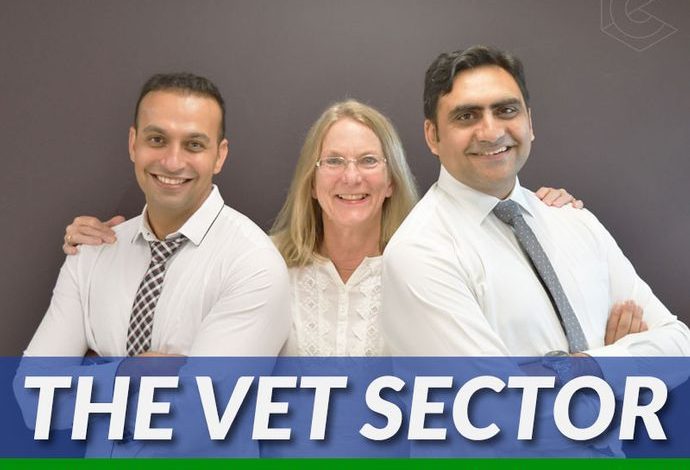
11 September, 2018
The VET Sector Newsletter – Edition 1, April 2018
The official Newsletter from Compliance and Quality Assurance (CAQA) OUR FIRST NEWSLETTER By Anna Haranas Welcome to The VET Sector, our official newsletter for the Australian VET education and training sector. This monthly publication is an initiative of the team at Compliance And Quality Assurance (CAQA). The newsletter will be a vehicle for news and […]
6 years ago

11 September, 2018
Victorian TAFE free-for-all – is it beginning of another “Crisis”?
From January 2019, the Victorian Government will cover the cost of 30 TAFE courses and 18 pre-apprenticeship courses. The free courses run for up to two years and include accounting, agriculture, construction, plumbing, engineering and nursing. The free TAFE courses Non-apprenticeship courses Apprenticeship pathway courses Accounting, Certificate IV/Diploma/Advanced Diploma Automotive Air Conditioning Technology, Certificate II Ageing Support, Certificate IV Automotive Body Repair Technology, Certificate II Agriculture, Certificate II/III/IV […]
6 years ago

11 September, 2018
Contextualising assessment resources (Part 1)
Contextualisation of training packages, accredited curricula and learning resources can be achieved without compromising the Standards for Registered Training Organisations (RTOs) 2015. Contextualisation is the addition of industry-specific information to tailor the Standards for Registered Training Organisations (RTOs) 2015 to reflect the immediate operating context and thereby increase its relevance for the learner. Contextualisation is […]
6 years ago

9 October, 2018
VET Industry News 10-Oct-2018
ASQA Welcomes Convictions for Dodgy Training Providers The national VET regulator has welcomed the conviction of four people who falsified documents. For more Information: visit this link. Updates to the BSB Training Package Updates to the BSB Training Package were released last week and Release 3.0 is now published on the national register of VET, training.gov.au (TGA). […]
6 years ago

9 October, 2018
Getting to know the VET
VET information at your fingertips NCVER’s VET Knowledge Bank is a key source of reference information about Australia’s VET system. Did you know the VET sector is the largest education sector in Australia? Like most countries, Australia’s VET system is complex and ever-changing. Getting to know VET aims to explain the system via a chart of the key components, […]
6 years ago

5 November, 2018
Why keep in touch with what is happening in the VET sector
Information is power. The more you read, the more you understand the world around you. The VET world is evolving at a lightning speed and is changing the way we all used to do things. Continuous learning in the VET sector is a must. Why should you keep in touch with the VET updates Because […]
6 years ago

7 December, 2018
Why do you enjoy working in the VET Sector?
We asked this question to some of our RTO colleagues, to know what worked for them, how they are contributing positively to the VET sector, and we have captured their responses: Dr Bryan West is founder and manager of Fortress Learning, RTO. 31974. Fortress Learning has from its early days emphasised robust delivery of training […]
6 years ago

12 March, 2019
The VET Sector News – December 2019
Poorer and regional Australian students lag behind richer peers, report finds Poorer Australian students are 18 months behind their better-off peers at school, a report by Deloitte has found. And regional students were on average eight months behind at school. If academic results could be improved by 50% for poorer and Aboriginal students, the economy […]
6 years ago

6 May, 2019
Internal audits and why they are so important (Part 4 of 5)
In the first three parts of this series we discussed the following: What are internal audits? What are the benefits of conducting internal audits? What is an audit scope? What is usually included in an RTO internal audit? Who can be an internal auditor? Compliance costs and risks in terms of “risk management” The effective […]
6 years ago

14 August, 2019
What should the vocational education and training regulatory system look like?
Our belief is that a regulatory system should be based on the following principles: Transparency: All audit reports should be made public on ASQA’s website. This will help establish a transparent vocational education and training system. Consistency: ASQA should only make decisions within the regulatory framework. There also needs to be a definition of what constitutes a […]
5 years ago

20 August, 2019
The man who stood up for the vocational education and training sector – Mr Andrew Laming MP
We can see the after effects of MP Andrew Laming’s speech in parliament. Many people have started talking about the vocational education and training sector, and the processes and procedures of the current regulator. His video that we have shared last week has received over 9,300 views, 1600 likes and 5 dislikes.The video is available […]
5 years ago

21 August, 2019
Interview: Troy Williams, Chief Executive Officer at the Independent Tertiary Education Council Australia (ITECA).
Here is a copy of our interview with Troy Williams, Chief Executive Officer at the Independent Tertiary Education Council Australia (ITECA). Troy, in a nutshell, what has been your experience of working in the training and education industry? It’s diverse. From the perspective of a provider, in the late 1990s I established a Registered Training […]
5 years ago

10 September, 2019
VET & Higher Education –Two Pillars Of One Tertiary System
With the Australian Government’s recent and welcome focus on Vocational Education and Training (VET), some stakeholders have seen this as a pitch against the value of the higher education system. When the Prime Minister said “VET is as good as uni” he was simply saying what is self-evident, that for different people, for different employers […]
5 years ago

10 September, 2019
VET Delivery to Secondary School Students
Vocational Training offers learners the chance to gain the required knowledge and skills to work effectively in the workplace and be part of the workforce. Vocational education and training (VET) provide this opportunity through industry-developed training packages or accredited courses while learners are still studying at school. These courses are usually delivered in years 10, […]
5 years ago

10 September, 2019
VET accredited course leads the way
There are two different kinds of training products delivered by registered training organisations (RTOs) within the VET industry: training packages and VET accredited courses. According to the Australian Skills Quality Authority (ASQA): “A VET accredited course has been assessed by ASQA as compliant with the Standards for VET Accredited Courses 2012 and the Australian Qualifications […]
5 years ago

18 September, 2019
The VET Sector News
Integration is the key to the future – TROY WILLIAMS Australia needs an integrated tertiary education system in which higher education plus vocational education and training operate as one but they retain their separate identities. The rationale is strong. Those entering the workforce today are likely to have three or four careers before they retire, […]
5 years ago

1 October, 2019
A 19-member panel Industry VET Stakeholder Committee working to deal with the VET challenges
The Morrison Government has established its Vocational Education and Training (VET) Stakeholder committee to help drive its significant agenda of reform. Scott Morrison has flagged that VET reforms are a key reform agenda priority and is working to deal with the challenges outlined in the Joyce review that declared confidence in the sector was declining, […]
5 years ago

1 October, 2019
The VET Sector News
India is reforming education for the first time since 1986 – here’s why Australia should care India released a Draft National Education Policy (DNEP) in June 2019. It’s the first comprehensive policy proposal on education in the country since 1986 and a major, game-changing statement. Australia has a moral duty to engage with the global […]
5 years ago

18 November, 2019
Review of Australian Qualifications Framework (Part 1)
The AQF review, chaired by Victoria University tertiary education professor Peter Noonan, recommended a shake -up of Australia’s qualification system. Under the recommended changes senior secondary students would also be able to study subjects at school that would count towards a vocational training qualification or university degree. The new changes will enable students to mix […]
5 years ago

18 November, 2019
I want to voice my opinion – your letters and emails to us
In this newsletter, we have selected this email received from one of our subscribers genuinely questioning the current regulatory environment of Registered Training Organisations: “It has been my experience as an RTO Manager that everyone except the RTO is protected in the current environment. Students and staff can complain to ASQA and Smart and Skilled […]
5 years ago

18 November, 2019
Industry consultation form released to assist development of VET accredited courses
ASQA has released a tool to assist in the development of VET accredited courses. The following media released has been published by Australian Skills Quality Authority: The Standards for VET Accredited Courses 2012 require a course developer to provide: evidence of an industry need and supporting evidence that industry consultation and validation of course content […]
5 years ago

4 December, 2019
Communiqué for the COAG Skills Council Meeting – 22 November 2019
The Council of Australian Governments (COAG) Skills Council (the Council) held its second meeting today in Brisbane to agree on an ambitious approach to enhancing vocational education and training (VET). Council congratulated the winners and finalists recognised at the Australian Training Awards on their outstanding achievements. The winners and finalists offer a shining example of […]
5 years ago

16 December, 2019
National Vocational Education and Training Regulator Amendment Bill 2019
The National Vocational Education and Training regulator Amendment Bill 2019 has been lodged in the senate. The proposed amendments are intended to improve the efficiency and effectiveness of the ASQA’s regulation of the sector. The changes strengthen registration requirements, modernise information and data sharing and improve the administrative efficiency of the NVETR Act. Key reforms […]
5 years ago

17 December, 2019
VET International Engagement Strategy 2025 launched
The Morrison Government has reaffirmed its commitment to ensure Australian VET sector continues to play a significant role in contributing to the development of a highly skilled workforce by lodging Vocational Education and Training International Engagement Strategy 2025. Australia’s first National Strategy for International Education 2025 enables Australia’s international education sector to be more innovative, […]
5 years ago

17 December, 2019
Satisfaction with vocational education and training remains high
New data from over 170 000 vocational education and training (VET) students shows that satisfaction with VET remains high, according to a new report by the National Centre for Vocational Education Research (NCVER). The annual National Student Outcomes Survey is Australia’s largest survey of VET students and provides information on employment outcomes and training satisfaction […]
5 years ago

17 December, 2019
The VET Sector News II – December 2019
Apprentice and trainee commencements down in June 2019 quarter The latest release of national apprentice and trainee data show commencements were down 3.3% to 33 295 in the June 2019 quarter, when compared with the same quarter in 2018. Apprentices and trainees 2019 — June quarter, published by the National Centre for Vocational Education Research […]
5 years ago

17 December, 2019
I want to voice my opinion – Your letters and emails to us
In this newsletter, we are selecting this email that we received from one of our subscribers genuinely questioning the current regulatory environment on the Registered Training Organisations: Thank you for your ongoing support of the VET Sector and in particular your reporting on the actions of ASQA. I have worked in the VET industry for […]
5 years ago

18 February, 2020
VET Student Loan Caps Lifted
https://www.vetsector.com/post/vet-student-loan-caps-lifted
5 years ago

18 February, 2020
Mitchell Institute releases new report and sounds VET funding alarm
https://www.vetsector.com/post/mitchell-institute-releases-new-report-and-sounds-vet-funding-alarm
5 years ago

18 February, 2020
Vocational education and training
https://www.vetsector.com/post/vocational-education-and-training
5 years ago

18 February, 2020
SA Govt invests in vocational education and training
https://www.vetsector.com/post/sa-govt-invests-in-vocational-education-and-training
5 years ago

20 February, 2020
I paid for it – why don’t I own it? – the copyright trap, article by Margaret Ryan, Lawyer and Trade Marks Attorney
If your business commissions a graphic artist to create a logo and brand collateral for the business, who owns the copyright in the artwork? Have you thought about this? It is important that businesses do think about this when commissioning third parties to create artistic works and literary works. These works can include: logos; artwork […]
5 years ago

20 February, 2020
Are you looking for a VET professional to join your team? Or perhaps you are looking for your next career opportunity?
Specialising in recruitment Australia wide, Career Calling Jobs work with a large number of qualified and passionate candidates searching for the next challenge in their career within the VET sector. Our platform receives an extraordinary number of applications from candidates who are specifically seeking employment in the industry. We are currently working with professionals who […]
5 years ago

9 May, 2020
We hear loud & clear message from business-VET sector is not meeting your workforce needs-PM Scott
Strong comments regarding the Australian VET system were made by Prime Minister Scott Morrison in his speech to the Business Council of Australia (BCA). “We hear loud and clear the message from the business – that our Vocational Education and Training (VET) sector is not meeting your workforce needs. I’m not going to throw more […]
5 years ago

11 May, 2020
Annual declaration on compliance
Are you confident that your RTO meets current compliance requirements with RTO standards? Or do you need help? All Australian Registered Training Organisations (RTOs) are required to submit an annual declaration on compliance with the RTO standards applicable to their organisation on or before 31st March 2018. The CEO Declaration The declaration is a legal […]
5 years ago

30 November, 2020
What happens when one of the electives in a qualification has been superseded?
There is great confusion in the VET sector, especially now with all the changes that have been made to the BSB, ICT and HLTAID qualifications. We are constantly answering this question: If an elective has been superseded in a qualification, but the old unit is still listed as the elective, which one am I supposed […]
4 years ago

1 December, 2020
How to complete a compliant Trainer Matrix – Part 1 of Part 5
We believe that representatives of the training organisations and trainers usually do not understand the importance of the correct and current trainer matrix available for audit. If you do not keep on top of compliance requirements, you may fall behind and you will not realise that your trainers can not actually train or assess the […]
4 years ago

1 December, 2020
Writing your Training and Assessment Strategy – Part 1 of Part 5
A Training and Assessment Strategy (TAS) is the approach of, and method adopted by, an RTO with respect to training and assessment designed to enable learners to meet the requirements of the training package or accredited course (Glossary, Standards for RTOs 2015). The Training and Assessment Strategy (TAS) is a high-level view of a program […]
4 years ago

3 June, 2021
Part 1- Contextualising of assessment resources
Contextualisation of training packages, accredited curricula and learning resources can be achieved without compromising the Standards for Registered Training Organisations (RTOs) 2015. Contextualisation is the addition of industry-specific information to tailor the Standards for Registered Training Organisations (RTOs) 2015 to reflect the immediate operating context and thereby increase its relevance for the learner. Contextualisation is […]
3 years ago

16 June, 2021
Obligations of Registered Training Organizations in Terms of Reporting
Under the Standards for Registered Training Organisations 2015, all RTOs are obliged to provide accurate and complete data. All ASQA-registered training organisations RTO must meet mandatory annual data submission requirements, including: Submitting the annual declaration on compliance to ASQA Submitting total VET activity (TVA) data, including the reporting of unique student identifier (USI) data. There […]
3 years ago

24 June, 2021
Part 1- How compliance and quality assurance are two separate but intertwined concepts
When you plan to run a registered training organisation (RTO), you may find it difficult to know: the complete regulatory framework and environment your legal obligations and everything else required to run a successful, compliant Registered Training Organisation. Take compliance and quality assurance, for example, you may have heard about them, but do you know […]
3 years ago

7 July, 2021
Part 2- How compliance and quality assurance are two separate but intertwined concepts
When we look at the current Standards for Registered Training Organisations 2015, the clauses relevant to Registered Training Organisations’ regulatory compliance, the reporting and governance practice, they all clearly underpin good management practices and effective compliance control procedures—and, as a result, the effective functioning and sustainability of RTOs. These Standards support RTOs to provide high-quality […]
3 years ago

21 July, 2021
Part 3- How compliance and quality assurance are two separate but intertwined concepts
In this third and final part of our “compliance and quality assurance,” articles, we are continuing to discuss compliance and quality assurance requirements, standards, expectations and the differences between them. How does quality assurance differ from compliance? It can be overwhelming trying to keep track of all your organisation’s compliance obligations. That’s why many businesses […]
3 years ago

8 August, 2021
Message from the General Manager (8 August 2021)
Message from the General Manager With this edition of our monthly newsletter THE VET Sector, we will discuss the most recent changes to the Financial Viability and Risk Assessment (FVRA) and its impact on training organisations, the best strategies for remaining financially viable, and other important news and updates related to vocational education and training, […]
3 years ago

8 August, 2021
Some ESOS courses are no longer required to be registered with CRICOS
It is now allowed for registered training providers to offer certain supplementary courses to international students without having those courses listed on the Commonwealth Register of Institutions and Courses for Overseas Students (CRICOS). The Education Services for Overseas Students (Exempt Courses) Instrument 2021, which exempts some supplementary courses from the ESOS Act, took effect on […]
3 years ago

22 August, 2021
Online learning is much more than access to training and assessment materials online
In spite of the fact that different nations are at different stages of COVID-19 infection rates, there are currently more than billions of learners in 186 countries who are affected by face-to-face classroom closures as a result of the epidemic. This is one of the reasons why we decided to create a few articles to […]
3 years ago

22 August, 2021
RPL Kits-Let’s discuss compliance with clauses 1.8 and 1.12
The legislative requirements The legislation is very clear regarding compliance in RPL kits and why you need to have RPL Kits for every unit of competency you are training and assessing. The legislative instrument includes the following clauses: Assessment 1.8. The RTO implements an assessment system that ensures that assessment (including recognition of prior learning): […]
3 years ago

22 August, 2021
The VET Sector News II-August 2021
National Skills Week 2021: RETHINK your ideas National Skills Week, which is now in its eleventh year, will once again aim to bring to life the positive messages by exposing the talents, skills, career routes, and worth of apprentices and trainees across Australia to the general public and business community. For more information, Click here. […]
3 years ago

22 August, 2021
Message from the General Manager (22 August 2021)
Message from the General Manager If humans are capable of learning from their experiences, one thing that would stand out in this COVID era is that life will never be the same again, no matter how much we want things to return to the way they were. The education industry now requires better communication and […]
3 years ago

25 August, 2021
Getting acquainted yourself with the VET
VET information at your fingertips NCVER’s VET Knowledge Bank is a key source of reference information about Australia’s VET system. Did you know the VET sector is the largest education sector in Australia? Like most countries, Australia’s VET system is complex and ever-changing. Getting to know VET aims to explain the system via a chart of the key components, […]
3 years ago

3 September, 2021
Message from the General Manager (3 September 2021)
Message from the General Manager There are many changes taking place around the world right now, and the VET sector is no exception to this. The changes include VET Qualifications Reforms, a new AQF Framework, new technologies and practices for online course delivery. Some of these changes are covered in this edition of our newsletter. […]
3 years ago

3 September, 2021
Check if you have an authorised copy of the training and assessment resources
Training organisations should double-check that they have an authorised copy of the training and assessment resources from the publisher of the resource before using them for training purposes. In a number of audits, the regulatory body has requested proof of purchase because a number of stakeholders are aware that there are some offenders in the […]
3 years ago

3 September, 2021
Online Media Solutions (OMS) Services
Over the past two decades, Online Media Solutions (OMS) has provided assistance to clients worldwide. OMS merged into the CAQA and Career Calling brands in 2013. Services offered by Online Media Solutions include: website design and development; website security; web hosting; domains marketplace; development of iOS and Android applications; software development; graphics design including logos, […]
3 years ago

3 September, 2021
VET Qualifications Reform Survey – The world of VET is changing again including the units of competency
The world of vocational education and training is changing once more, and this includes the structure of units of competency. The Department of Education, Skills, and Employment is participating in consultations on the new structure, methods, and procedures connected to the vocational education and training sector over a period of 1.5 years as part of […]
3 years ago

19 September, 2021
Message from the General Manager (19 September 2021)
Message from the General Manager Have you looked at ASQA’s new Corporate Plan? The plan shows that the organisation is committed to best practices and proportionate regulation. ASQA will assist providers in better understanding what they do, why they do it, and how they do it. According to ASQA, we may anticipate fair processes, consistency, […]
3 years ago

19 September, 2021
Resource Validation Services: Why outsourcing can be a great option
Following the National Vocational Education and Training Regulator Amendment (Governance and Other Matters) Bill 2020, ASQA has made a significant upgrade to the architecture of the vocational education and training (VET) sector and its approach. The rapid change roadmap includes strengthening ASQA’s strategic stakeholder engagement and education to build provider capacity for self-assurance. In line […]
3 years ago

21 September, 2021
Morrison Government marks National Skills Week 2021 with highest funding for skills and training in Australian history
The Morrison Government has marked National Skills Week 2021 by reminding Australians of the incredible opportunities of a skilled career as hundreds of thousands make use of the skills and training pathways guaranteed through record levels of federal funding. Given the massive demand for skilled workers it is also a great reminder that it is […]
3 years ago

22 September, 2021
Our webinar related to Skills First – By CAQA Experts
Sukh Sandhu – Hello and welcome everyone. Please accept our thoughts and prayers for all those who are affected by the lockdown across Australia before we commence today’s presentation. The last several months have been extremely demanding and exhausting, but we are hoping that we will be able to come out of this situation eventually. […]
3 years ago

4 October, 2021
New job opportunities!
JOIN THE RECRUITMENT REVOLUTION Operations Manager (Mullumbimby, NSW) Sales Representative (Surry Hills, NSW) Compliance Manager (Wollongong, NSW) RTO Senior Office Administrator (Morayfield, QLD) Barber Trainers (Chermside, Brisbane West, Ipswich, Toowoomba) CHC Trainers (Melbourne, VIC) BSB Trainers (Melbourne, VIC) FNS Trainers (Melbourne, VIC) ICT Trainers (Melbourne, VIC) View all jobs Looking for a new opportunity? Whether […]
3 years ago

4 October, 2021
Australia’s five most powerful education leaders in 2021
AFR Magazine’s annual Power issue, out on Friday, October 1, includes lists of the key players across six industry sectors. Here the people topping teaching in a profound year for the sector. Remote learning has been gathering momentum for decades, but it was the initial shock of the pandemic that made it mainstream. Although the […]
3 years ago

4 October, 2021
Message from the CEO (4 October 2021)
Message from the CEO Our professional development event related to Skills First Funding was a huge success, with hundreds of people in attendance. We have made the video available online on our websites so that you can check out the material. We are a team of quality and compliance experts who have been in the […]
3 years ago

4 October, 2021
Validation Demystified – Part I
Validation is arguably the central pillar of the VET practice and has a valued place in the education system. It is one of the few compliance requirements that influence and is accountable for more than a dozen standards within the Standards for RTO 2015. As such, validation is the much-studied, crammed and piloted concept of […]
3 years ago

14 October, 2021
Interview with Anurag Kanwar – BEc, LLB, LLM, GDLP, AAPRI, FIML, MAICD.
Anurag has over 15 years of experience in higher education all within the private higher education space. She is the executive secretary of the GCA Board of Directors. She is a prolific commentator on LinkedIn with over 6000 followers commenting on international education, technology and continuous experience. She is a practising lawyer specialising in the […]
3 years ago

14 October, 2021
Interview – Matthew Dale – Director, Audit Express and Educonomy
With more than a decade experience working across the VET Sector, Matthew brings a wealth of skills, knowledge and experience to Audit Express & Educonomy. Matthew has had extensive experience in managing the quality & compliance of various state funding contracts and in leading RTOs through the complex process of re-registration. Matthew’s passion is with […]
3 years ago

14 October, 2021
Interview – Andrew Shea – CEO, Builders Academy Australia
Andrew is an educational and business professional and known intrapreneur who specialises in leading high performing teams, optimising business processes and quality assurance and compliance frameworks. He is a proven transformational leader and has successfully fulfilled managerial and leadership positions across a range of industries. Areas of specialisation include: ♦ C-Suite executive across ASX and […]
3 years ago

14 October, 2021
CAQA Online forums, CAQA Info for maintaining your compliance and regulatory knowledge
CAQA Online forums provide information for RTO professionals. The purpose of the forums is to support compliance and regulatory knowledge with the help of other professionals in the field. Some of the benefits of subscribing to our online forums are that it provides access to knowledge sharing and networking opportunities among peers in the vocational […]
3 years ago

14 October, 2021
Strategies to maintain VET and Industry currency as a trainer and assessor
The VET industry is changing rapidly, therefore, trainers and assessors need to continuously update their skills, knowledge and competencies to work effectively in the training and education industry. Industry currency refers to trainers and assessors who keep current knowledge, skills, and experience of current workplace industrial practises in the industry sector in which they teach. […]
3 years ago

14 October, 2021
ASQA publishes scoping study on VET in schools
The scoping study on vocational education and training delivered to secondary school students was issued by the national regulating agency in order to protect the quality of VET delivery. It is ASQA’s role as national regulator for VET to work in partnership with training providers to guarantee compliance with the Standards for Registered Training Organisations […]
3 years ago

14 October, 2021
Why should you read and share THE VET SECTOR newsletter?
The purpose of this newsletter is to maintain an ongoing dialogue with the industry representatives, giving them a voice and platform to raise their concerns and practices. The importance of this newsletter is not only because it has a lot of subscribers but also because without the right information, one cannot be an active participant […]
3 years ago

14 October, 2021
Online learning – Understanding the learner experience continuum
Online learning has become one of the most used forms of learning in the VET sector. It is a flexible and convenient way for people to learn new skills, knowledge, and information. Learning online is a process that many organisations are starting to take more seriously. They are trying to figure out how to best […]
3 years ago

14 October, 2021
Message from the CEO
Message from the CEO We need to make sure we eliminate any issues that lead to decreased student engagement and an increase in drop-out rates. We need to think about and execute support for students who want to complete a VET qualification and follow their interests or passion. Coming out of lockdown, we will need […]
3 years ago

1 November, 2021
Interview with Peter Doukas – Managing Director, Denison Toyer Education Lawyers
Peter owns and operates Sydney based education law firm Denison Toyer. Working in the field of Education Law and Corporate Governance since 2007 Peter has acted for over one hundred Registered Training Organisations and Higher Education Providers in various stages of the education management cycle. He routinely acts for colleges in the Administrative Appeals Tribunal […]
3 years ago

1 November, 2021
Interview with David Jepsen, Founder and Principal of RTO Accountants
With over 25 years’ experience as a practicing CA, David is the Founder and Principal of RTO Accountants. David started his career at KPMG, moving onto mid tier accounting firms and commercial roles with Citigroup, Zurich, CBA and others in Sydney and London before setting up an accounting practice in 2001. Offering commercial and practical […]
3 years ago

1 November, 2021
Landmark VET reforms to drive our skills-led economic future
A fundamental overhaul of Australia’s vocational education and training (VET) system has been agreed to by the Morrison Government and states and territories. The reforms are an important achievement and will improve the performance, efficiency, transparency and confidence in the VET sector, ensuring Australians can access high quality and relevant training and employers can access […]
3 years ago

1 November, 2021
The Top 10 VET Sector websites and resources – you must know!
There are numerous resources available on the internet that you can use to make your life easier. Google, Wikipedia, YouTube, and Amazon are just a few of the websites that receive a lot of traffic. These websites make it simple to browse the internet and offer all of the information you require right at your […]
3 years ago

1 November, 2021
Advertise with us @ The VET Sector
The VET Sector is a digital magazine and newsletter that has been developed to promote and provide information about opportunities in the VET sector and increase awareness of changes affecting the industry. We hope that through our newsletter and e-magazine, we can provide the information that the vocational education and training sector needs and long […]
3 years ago

1 November, 2021
Message from the CEO (1 Nov 2021)
Message from the CEO Welcome to the next edition of The VET Sector newsletter. This edition is jam-packed with useful information, informative articles, practical to-do suggestions, our professional experiences, and much more As always, we are inviting you to email us your thoughts, feedback, and suggestions for topics to be included in our next newsletters […]
3 years ago

14 December, 2021
Professional development session by Edu Learning and CAQA Skills – Transcript – Trainers and Assessors requirements
Sukh Sandhu: – Hello, everyone. Welcome to another professional development session brought to you by Compliance and Quality Assurance, CAQA, Edu Learning, CAQA Skills, The VET Sector and Career Calling International. We would like to pay our respects to traditional owners of the land and to their elders, past and present. Let me remind you […]
3 years ago

14 December, 2021
Interview with John Molenaar, Quality and Compliance Auditor
John Molenaar is an education professional who started his career in teaching with positions as a primary and secondary teacher. In the late 1980s/early 1990s, he held roles in education organisation management as Executive Director of the Gould League of Victoria and the John Gardiner Centre. In the mid 1990’s John started his career in […]
3 years ago

14 December, 2021
Message from General Manager (14 Dec 2021)
Message from General Manager All of life’s pleasures are just temporary, so make use of them while you can. The best memories will endure a lifetime, and if you do not experience the joy in the moments, just regrets will be left behind. We hope you have a wonderful holiday season and that you will […]
3 years ago

31 January, 2022
Edu Learning – Your door to professional development opportunities
We would love to have you join our professional development retainer agreement services or individual professional development opportunities through Edu Learning. Our organisation works with the aim to help you grow your skills in a fun and interactive way. The benefits of joining our organisation are numerous, from getting tips from VET experts and industry […]
3 years ago

31 January, 2022
Acute skills shortages in VET
Coming out of lockdown and re-opening RTOs have revealed one big problem. The VET sector has huge skills shortages, and there are nearly hundreds of vacant VET positions advertised in SEEK this week across Australia. There are many factors that have contributed to this shortage, and it did not happen overnight. A big contributor has […]
3 years ago

31 January, 2022
The top problems that the Australian VET sector is facing
The VET sector in Australia is growing in scale and sophistication every year. The Australian VET sector is facing several problems that are likely to have a significant impact on its future. These include things like an aging workforce, the rising cost of education and a decline in students enrolling in VET qualifications. The most […]
3 years ago

31 January, 2022
Message from the CEO (31 Jan 2022)
Message from the CEO (31 Jan 2022) Welcome to our January edition of the VET sector magazine. In this edition, there are articles discussing the latest news from the Department of Home Affairs on changes being made, and an article explaining how online courses can help develop a skilled workforce and much more. We thank […]
3 years ago

20 February, 2022
Car-makers welcome electric vehicle technology certification offered through vocational training institutions in Australia.
An initiative to raise the level of certification in electric vehicle technology offered by vocational training institutions in Australia has been hailed by a number of automotive manufacturers. Despite the fact that all of the companies have extensive internal training programs of their own, they recognise the importance of equipping technicians to service, diagnose, and […]
3 years ago

20 February, 2022
Even if the border is fully reopened, the country will continue to experience a national skills shortage – how VET sector is the solution?
A large number of Australians are now in trades, the fastest rate since the start of the pandemic. A record number of students are also attending universities, but experts believe more must be done to boost skills training possibilities that are focused on the future of employment. The number of young Australians enrolled in university […]
3 years ago

20 February, 2022
CAQA Online forums, CAQA Info for maintaining your compliance and regulatory knowledge
CAQA Online forums provide information for RTO professionals. The purpose of the forums is to support compliance and regulatory knowledge with the help of other professionals in the field. Some of the benefits of subscribing to our online forums are that it provides access to knowledge sharing and networking opportunities among peers in the vocational […]
3 years ago

20 February, 2022
Reasonable adjustments in the learning environment
What is a reasonable adjustment? In vocational education and training (VET), the term reasonable adjustment refers to adjusting the learning environment or making adjustments to the training or assessments offered. This is to provide a student with additional needs and/or requirements the same learning opportunities as a student with no barriers to learning. Simple changes […]
3 years ago

20 February, 2022
Message from the CEO (20 Feb 2022)
Message from the CEO To know that the regulating body is revising its past practises in order to put more emphasis on positive things in the future such as working in collaboration with industry is a wonderful feeling. We’ve included some articles on topics such as the metaverse, virtual reality, and artificial intelligence in this […]
3 years ago

24 March, 2022
Requirements to enrol learners in your courses
There are specific prerequisites that must be met prior to student enrolment or the beginning of training and assessment, whichever occurs first. In addition, the RTO should advise the prospective learner on the training product that will best meet his or her needs while taking into consideration the individual’s existing skills and competencies. So what […]
3 years ago

24 March, 2022
Transition planning and requirements
The training packages are updated on a regular basis to ensure that they continue to meet industry and regulatory requirements. Training organisations are expected to perform a significant amount of maintenance work when there is a transition to a new package. The failure to manage transition planning can have negative consequences for your training organisation, […]
3 years ago

24 March, 2022
How to ensure your training organisation is compliant with government regulations
If you’re running a vocational education and training organisation in Australia, you need to ensure that your organisation is compliant with government regulations. This article will outline some of the regulations that you need to be aware of, and provide tips on how to ensure compliance. The Australian Skills Quality Authority (ASQA) The Australian Skills […]
3 years ago

24 March, 2022
Message from the CEO (23 March 2022)
Message from the CEO We welcome you to our March edition of the VET sector magazine. In this edition, there are articles discussing the NCVER submission, CEO declaration of Compliance, transition planning and much more. We thank you for taking the time to read this publication and we hope it provides you with useful information. […]
3 years ago

25 April, 2022
The Australian VET system is eroding, fragmenting, and dysfunctional.
New research is showing that Australia’s VET system displays indicators of erosion, fragmentation, and dysfunction. According to the findings of the study, conducted by the Australia Institute’s Centre for Future Work, profound and long-standing flaws with Australia’s vocational education and training system have not been remedied – and in some cases, have deteriorated. A senior […]
3 years ago

25 April, 2022
CAQA Analysis on NCVER’s Research Report – The four features of high-quality VET delivery.
It is widely accepted that high-quality vocational education and training (VET) is essential for achieving positive outcomes for both individuals and industry. However, there is still much debate about what factors make up a high-quality VET offering. In this article, we explore some of the key factors that registered training organisations (RTOs) should consider when […]
3 years ago

25 April, 2022
Message from the CEO (25 April 2022)
Message from the CEO We welcome you to our April edition of the VET sector magazine. We are pleased to announce that we will be releasing a new version of our flagship product, CAQA Labs in May. This product will be made available as a standalone software solution and also as part of our Information […]
3 years ago

22 May, 2022
Some lessons learned from working in the vocational education and training industry
The vocational education and training (VET) sector has a lot to offer students, employees and employers alike. It can provide pathways into careers, as well as upgrade existing skills and knowledge. There is a growing demand for VET courses, both in Australia and overseas. This means that there are plenty of opportunities for people who […]
3 years ago

22 May, 2022
Why not being prepared in the vocational education and training industry is dangerous
If a training organisation is not prepared to either research, prepare, deliver, or evaluate the training program, it could be putting both itself and its students at risk. For example, imagine you’re a trainer who’s been asked to deliver a new program on short notice. If you’re not prepared, you may not be able to […]
3 years ago

22 May, 2022
The key stakeholders involved in the Australian vocational education and training sector
The education and training sector is vital to the success of any economy. It is responsible for providing the skills and knowledge necessary for people to participate in the workforce. The sector is also important for ensuring that individuals have the opportunity to develop their skills and abilities throughout their careers. There are many different […]
3 years ago
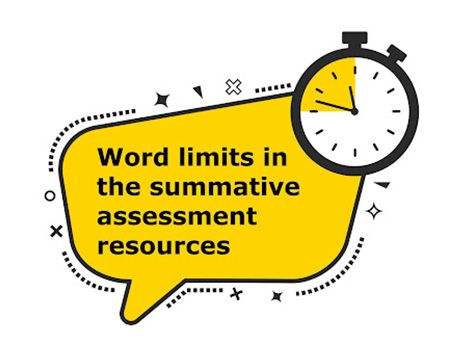
22 May, 2022
The importance of having word limits in the summative assessment resources
One of the most important aspects of VET is summative assessment. Summative assessment resources play a vital role in ensuring that students are able to demonstrate their learning and progress. However, summative assessment resources can also be a source of frustration for both students and educators if they are not well managed and written. It […]
3 years ago

22 May, 2022
How to become a trainer and assessor in Australia.
There is currently a high demand for qualified trainers and assessors in Australia, so if you have the relevant skills and qualifications, you should be able to find work in this field. Becoming a trainer and assessor can be a rewarding career choice, allowing you to share your knowledge and expertise with others. It can […]
3 years ago

22 May, 2022
Message from the CEO (22 May 2022)
Message from the CEO As we usually say, change is the one thing that is consistent in the VET sector, and this month is no exception. The national regulatory body is going through a number of fundamental changes, and this is fantastic news for the Australian VET sector. When compared to a few years ago, […]
3 years ago

12 June, 2022
How To Stay Compliant Without Spending A Fortune On Consultants
The vocational education and training (VET) industry is highly regulated, with a complex web of federal and state laws and regulations. Staying compliant can be a full-time job in itself – and an expensive one, if you rely on consultants to help you navigate the compliance minefield. But it doesn’t have to be that way. […]
2 years ago

12 June, 2022
Organisations that offer information, advice, and support for VET students and providers in Australia
There are a number of vocational education and training (VET) resources available in Australia. Here are some of the best ones: The Australian Government’s MySkills website is a great starting point for anyone looking for information on VET courses and providers. The website provides a searchable database of over 22,000 VET courses and programs, as […]
2 years ago

12 June, 2022
Engaging and retaining students in the vocational education and training sector
The vocational education and training (VET) sector has undergone significant changes in recent years. There has been a move away from traditional classroom-based teaching to more experiential, hands-on learning. This shift has brought with it a number of challenges but also some important lessons that can be applied more broadly. One of the biggest challenges […]
2 years ago

12 June, 2022
Message from the CEO (12 June 2022)
Message from the CEO Hello, and thank you for taking the time to read this edition of our newsletter! In this issue, we will talk about how the processes at ASQA have slowed down significantly, as well as a number of articles that are relevant to compliance and regulations, and we will also talk about […]
2 years ago

17 July, 2022
An ASQA initiative called Pathways and Perspectives has been launched
The excellent initiatives that ASQA is taking to deliver information to the VET and RTO sectors are worthy of appreciation. They have recently begun a project called Pathways and Perspective, which is an effective technique of informing and communicating with the VET industry. The community is provided with facts, insights, and noteworthy stories on the […]
2 years ago

17 July, 2022
Training and assessment in vocational education and training by unqualified trainers and assessors
It has been a huge concern in vocational education and training (VET) in Australia that training products are being delivered by unqualified trainers and assessors. This means that the quality of VET delivery can vary significantly from one provider to another and that there is potential for poor outcomes for students. There are a number […]
2 years ago
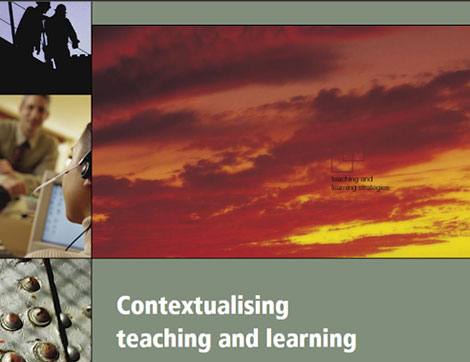
17 July, 2022
Summary of Contextualising teaching and learning – A guide for VET teachers
In this article, our team has prepared a summary of Contextualising teaching and learning – A guide for VET teachers. In this handbook, you will find practical, ready-to-use ways to contextualize learning in a variety of “classrooms,” from an educational institution to a factory floor and online. Its primary focus is on teaching rather than […]
2 years ago

17 July, 2022
Contextualisation and customisation in the vocational education and training industry
Customisation and contextualisation are two important approaches to vocational education and training (VET). Both involve tailoring VET programs to the specific needs of individual learners or groups of learners. However, there are some important differences between the two approaches. Contextualisation refers to the process of adapting VET programs to the specific context in which they […]
2 years ago

17 July, 2022
Benefits of upskilling and reskilling
There is a lot of discussion about the role of vocational education and training (VET) in providing the skills that people need for the future. VET has an important role to play in providing the skills that people need for the future, but it is not the only source of these skills. There are many […]
2 years ago

17 July, 2022
10 Principles – What it takes to run a compliant vocational education and training (VET) organisation
There are a number of key principles that must be adhered to if you wish to operate a compliant training organisation. In accordance with these principles, your organisation must deliver quality training in a safe and professional manner that meets the needs of your students. The first and foremost requirement is that your organisation be […]
2 years ago

17 July, 2022
Message from the CEO (17 July 2022)
Message from the CEO A training sector magazine and newsletter, The VET Sector, features articles, resources, and information for all stakeholders of Registered Training Organisations (RTOs). We cover relevant and important topics to RTOs, such as compliance, resources, and best practices. RTOs will find valuable information here that will help them improve their operations and […]
2 years ago
Archives
- July 2022
- June 2022
- May 2022
- April 2022
- March 2022
- February 2022
- January 2022
- December 2021
- November 2021
- October 2021
- September 2021
- August 2021
- July 2021
- June 2021
- May 2021
- April 2021
- March 2021
- December 2020
- November 2020
- May 2020
- February 2020
- December 2019
- November 2019
- October 2019
- September 2019
- August 2019
- July 2019
- May 2019
- April 2019
- March 2019
- December 2018
- November 2018
- October 2018
- September 2018
- August 2018
- July 2018
- June 2018
- May 2018
- November 2016
- October 2016

Sukh Sandhu
Chief Executive Officer
Sukh has been working in the VET and Higher Education Industry for over 20 years. In this time, he has held several roles with RTO’s including CEO roles for International Colleges and National Compliance and Quality Assurance Manager roles for several RTO’s, TAFE’s and Universities. Sukh has also worked for ASQA as a Business Systems Project Official.
Sukh has had extensive project management experience in risk management, compliance, administration and as a training consultant. He has extensive knowledge in government compliance standards and has participated in nearly one hundred audits across Australia and provided consultancy advice regarding ASQA/VRQA, TEQSA, ACPET, DET-HESG, VQF/Higher Education, ELICOS, NEAS, ANMAC, AHPRA, CRICOS, ESOS and ISO.
Sukh is a member of several independent professional organisations and government bodies including, ACPET, VELG, ACS, AITD, MARA, MIA, ISANA, APEX, IEEE, The Internet Society (Global Member), AISIP, IAMOT, ACM, OISV, APACALL, IWA, Eta Kappa Nu, EDSIG and several others.

 Enrol Now
Enrol Now Info Pack
Info Pack
